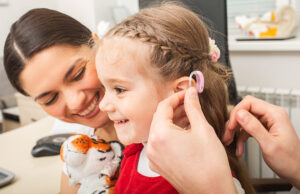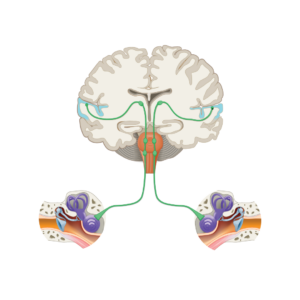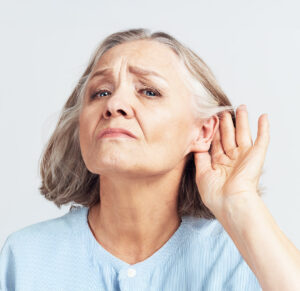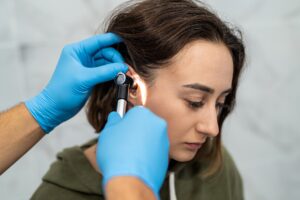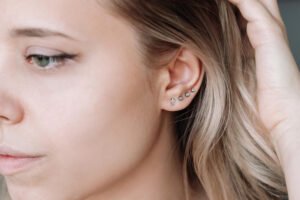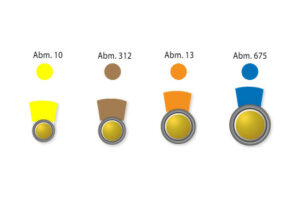Presbycusis
Age-related hearing loss, also known as presbycusis, typically affects higher frequencies. This leads to difficulties in hearing consonants, making speech comprehension more challenging, especially in noisy environments. Researchers believe that environmental factors, genetic predispositions, and individual lifestyles can influence the development of age-related hearing loss [1].
Presbycusis is one of the most common conditions in older adults and often comes with several challenges, such as limitations in social interactions, difficulties in sound localization, and an increased risk of dementia. Many people with presbycusis also suffer from tinnitus.
The treatment for presbycusis often involves the use of hearing aids, which help compensate for the hearing loss. This compensation or targeted tinnitus therapy can lead to improvements when using hearing devices. Please contact a doctor for an accurate diagnosis and therapy recommendation.
[1] Van Eyken et al. (2007): The Complexity of Age-Related Hearing Impairment: Contributing Environmental and Genetic Factors. Audiology and Neurotology
